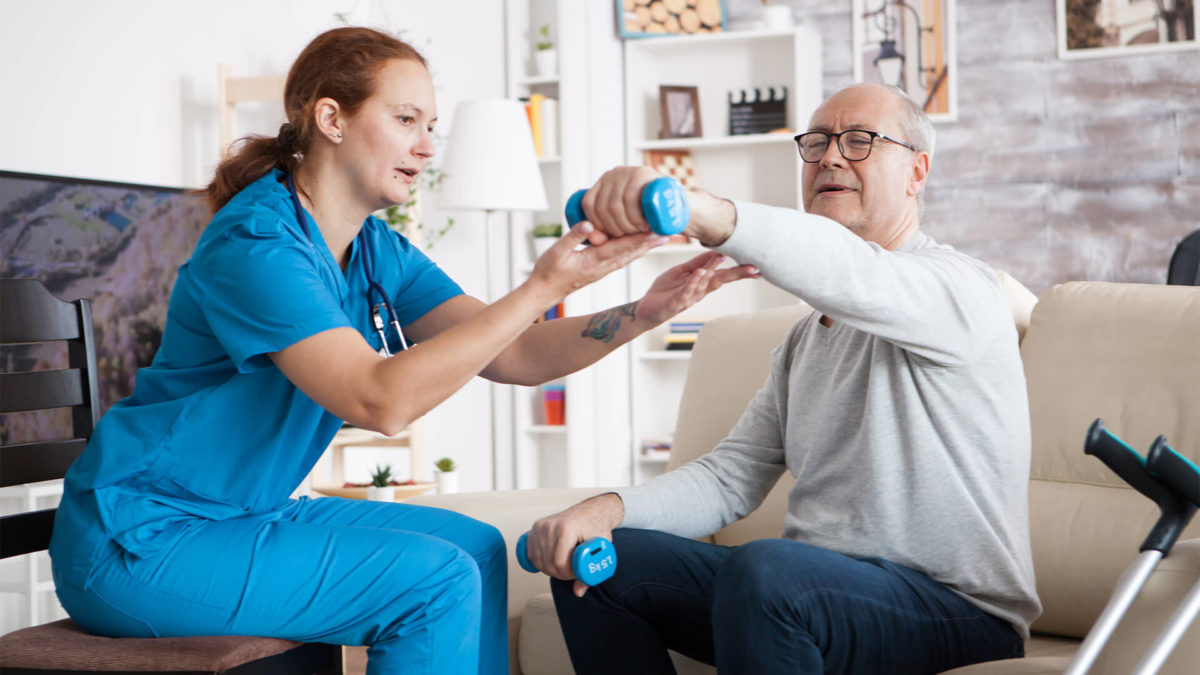How To Plan For Seniors To Recover At Home After Surgery

“Just one more week, your mom would be good to go.” Says the doctor.
Jane’s mom just finished her pacemaker implantation surgery, and it went perfectly well. Now, it’s time for home.
Excited yet overwhelmed, Jane feels like she’s not ready for her mom’s to come back home – she knows there are so many things to do to welcome her, and she’s feeling lost.
We feel you.
Helping your loved one recover from surgeries requires patience, organization, and well-thought-out planning. Here are some helpful tips for seniors recovering from surgery at home.
Things You Should Do to Help Your Loved One Recover from Surgery at Home
-
Talk to the medical team
If you don’t trust yourself, trust the professionals. The very first step you should take is to speak with the medical staff who’s caring for your loved one.
To ensure that your loved one’s recovery from the surgery is as successful as possible, ask them the following questions and take notes; these questions will help you through the whole process of caring.
-
How long will the recovery take?
-
What medication and supplement will we need?
-
How to help him or her get better faster?
-
Physical and nutrition plans?
-
What behaviours should be done/avoided during the recovery?
-
Stock up items that your loved one would need
This step will be done after you consult the medical professionals. Once your shopping list is done, it’s time to head to pharmacies and grocery stores to stock up all the items. What drugs does your loved one need? the foods that your loved one will eat? Are there any things she or he needs to help with the recovery? It is good to prepare the stuff ahead of time.
-
Create a safe environment for them
Senior’s at-home recovery always requires additional preparation than younger people. Other than purchasing things like compression socks or elevation pillow according to their needs, you can make the home environment safer and more comfortable by installing grab bars and nightlights, while removing unnecessary staff that might cause falls or slips. Put phone, lamp, and other frequently used items accessible around your loved one’s bed – a little makes a huge difference, your family will appreciate all these details.
-
Plan their diet
it should be cleared when your loved one is about to leave the hospital. Follow the nutritionist’ advice, or search for a diet that is complementary to their recovery. Also, don’t forget to encourage your loved one to eat and drink. Some patients lose appetites after a surgery, but you should ensure they gain enough nutrients to expedite the recovery.
-
Observe and help
Recovery is usually a long and frustrating process, and the patients may not notice the change to their physical and medical conditions themselves. So they will need your efforts to detect if there’s any change during the healing process, and offer help when they need it.
-
Be attentive to their emotions
There are so many uncertainties during the recovery process! So it is normal that your loved one becomes more sensitive than usual. As their family, you should be careful about what you say or act. Also, you can take them to some recreation activities or provide them some entertainment. See our blog on “How to Accompany a Senior” to find the details.
We are always kids no matter how old we grow, playing fun games would excite your senior family, too.
-
Accompany them to follow-up appointment
Some seniors are able to go to the follow-up appointments themselves. But it is still helpful if someone would accompany them to finish this task. It will not only allow you to know how to take care of your family better, but also give you a sense of participation. By doing so, you are basically telling them that: “you are not alone, I’m always here for you.”
-
Ask for help when you need it
Taking care of a patient can be stressful, so if you feel that it is getting hard for you to keep up all the work, don’t be afraid to reach for help.
You can hire an in-home caregiver to come home regularly, and help your loved one with dressing, bathing and housekeeping. It will be a life saver for you if you are a busy person.
Hiring a caregiver does take some work to do, too. Don’t panic, CareStory has prepared you 10 questions to ask on the way of looking for a home care agency.
References:
https://www.homecareassistancedesmoines.com/how-to-help-aging-adults-at-home-following-surgery/
https://www.canada.ca/en/financial-consumer-agency/services/insurance/long-term-care.html


